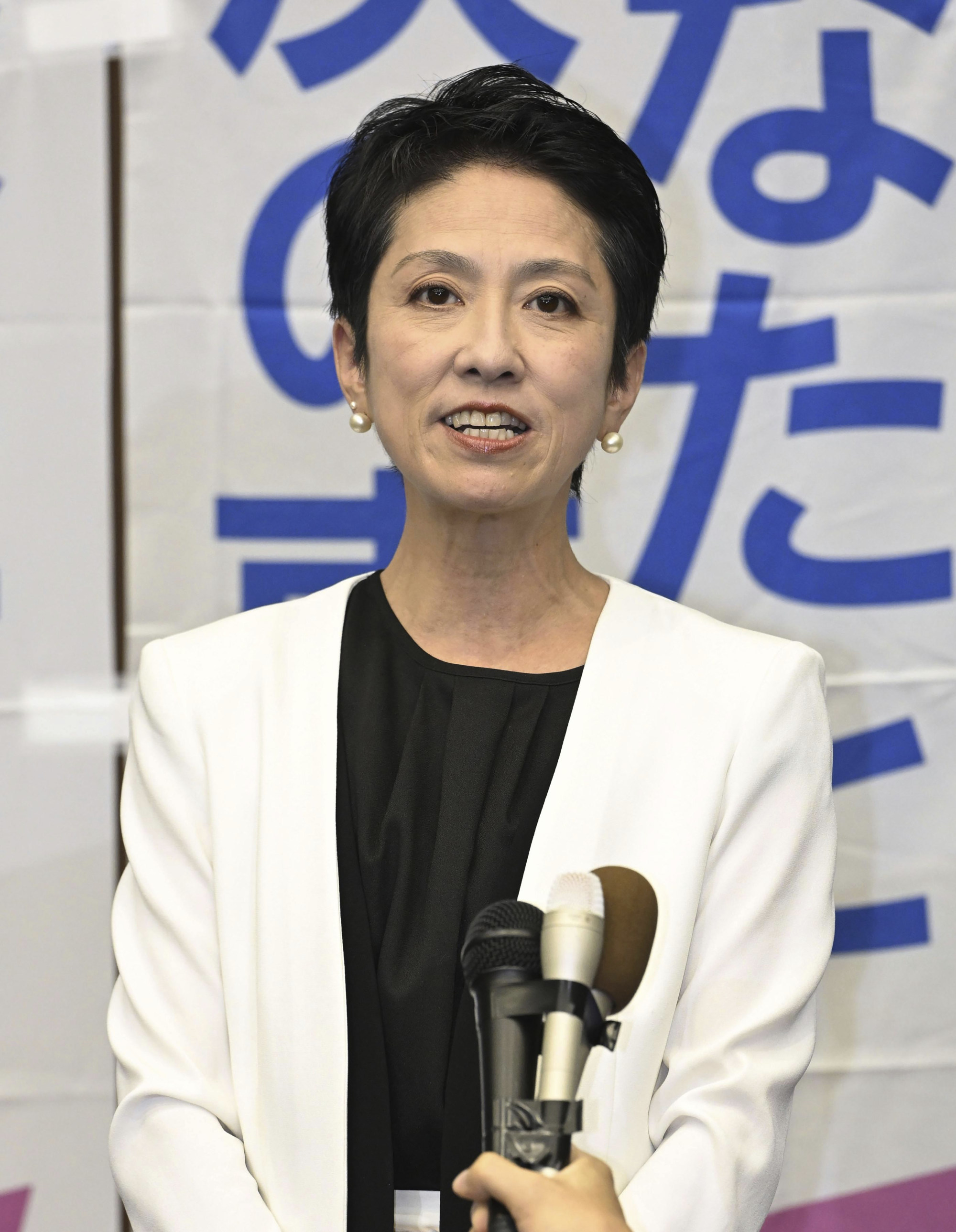Tokyo Governor Yuriko Koike set to win re-election, exit poll shows
“I believe the voters gave me a mandate for my accomplishment in the past eight years,” Koike said. She pledged to push for more reforms and support for Tokyo residents.
“I’m fully aware of my heavy responsibility,” she said. “I will tackle my third term with all my body and soul.”
A win by Koike is a relief for Kishida’s conservative governing party, which she has long been affiliated with. Kishida’s Liberal Democratic Party and its junior coalition partner, Komeito, unofficially backed her campaign.
Renho, running as an independent but supported by the main opposition Constitutional Democratic Party of Japan and the Japanese Communist Party, criticised Koike’s connection with Kishida’s party, which has been hit by a widespread slush fund scandal. A victory for Renho would have been a major setback for Kishida’s chances in the party’s leadership vote in September.
While the two high-profile women gathered national attention, Shinji Ishimaru, a former mayor of Akitakata town in Hiroshima, was seen to have gained popularity among young voters.

The main issues in the campaign included measures for the economy, disaster resilience for Tokyo and low birth numbers. When Japan’s national fertility rate fell to a record low 1.2 babies per woman last year, Tokyo’s 0.99 rate was the lowest for the country.
Koike’s policies focused on providing subsidies for married parents expecting babies and those raising children. Renho called for increased support for young people to address their concerns about jobs and financial stability, arguing that would help improve prospects for marrying and having families.
Another focus of attention was a controversial redevelopment of Tokyo’s beloved park area, Jingu Gaien, which Koike approved but later faced criticisms over its lack of transparency and suspected environmental impact.
Koike, a stylish and media savvy former TV newscaster, was first elected to parliament in 1992 at age 40. She served in a number of key cabinet posts, including environment and defence ministers, as part of the long-reigning Liberal Democratic Party.
Renho, known for voicing sharp questions in parliament, was born to a Japanese mother and Taiwanese father and does not use her family name. A former model and newscaster, she was elected to parliament in 2004 and served as administrative reform minister in the government led by the now-defunct Democratic Party of Japan.